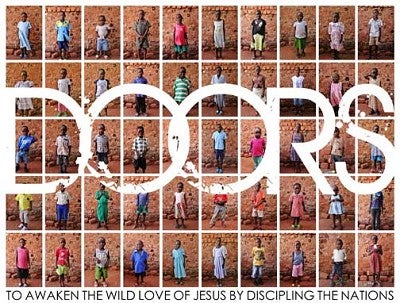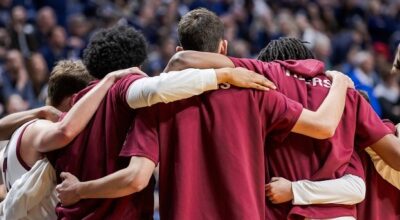From Farmville, With Love
Published 5:02 pm Thursday, July 19, 2012
FARMVILLE – There are homeless children in Uganda's capital addicted to drugs.
Addicted, specifically, to fuel.
Gas.
Petrol.
Call it what you want.
Their lives are slamming on the brakes.
Going in reverse.
By selling plastic bottles scavenged off the street, the children can raise 13 cents, enough to take the bandana from around their necks, soak it in fuel, and then tie it back around their throats.
Like a noose.
Hanging themselves, slowly, when they breathe deeply of the fumes that deaden the hurt and take them to the brief mirage, the ephemeral oasis of a fuel-induced 'high' in the desert of their young lives.
“One boy explained it to me,” Angela Jackson says, looking you directly in the eye. “Kids would get the fuel because, he said, at night if you sniff the fuel it takes away the hunger pangs and it also relieves you of the fact that you're cold.”
She can't forget. Won't forget.
And so Longwood University's Director of Residential and Commuter Programs will commute in a profoundly different way next Thursday.
Jackson is leaving, after nine years on campus, for a year of mission work in Uganda. She will strive to bring moments of genuine oasis into the lives of such children, pushing back the desert away from their lives a moment, an hour, a day at a time, life by life for those she is able to reach.
And in reaching, her life will also be touched.
A month in that African nation's capital, Kampala, in December-January reached down into her soul and taught her something about serious mission work, like an artist starting to paint a canvas and finding the brushstrokes on their own face, arms and hands.
Instant karma got her. She went halfway around the world to give and she found herself on the receiving end of tangible spirit. Good for good. Light for light.
“I think when you go on a mission trip, like for me I'm like 'Oh, I'll be able to serve and do some good and this is how I'm going to be able to help.' But I didn't really go expecting it to impact me the way it has,” she said. “And I think it was probably more impact on me than, maybe, my impact on them.
“I don't know how to weigh that out,” she said thoughtfully, still feeling the scales and the weight.
The impact on Jackson was clear to her colleagues when she returned to the campus in January.
“People have said, 'We can tell you're really passionate about it,'” she said, recalling a colleague who told her, “You just have this glow about you. You just look really different.”
She was lit up within and the light has not diminished one kilowatt. The month in Uganda fed her desire to give more of herself to the children of that nation in east Africa and its capital of 1.4 million people, many of them homeless children, scavenging plastic bottles for their daily bread.
Or fuel fix.
A fix that is breaking them.
Jackson is leaving to do unto others in Uganda as she would have them do unto her.
She will be working to help a new school built in the slums of Kampala. The enthusiasm bubbles inside of her, spilling over.
“I'm super pumped,” she said without exaggeration.
Jackson's December in Uganda and her year there are inspired by Longwood University alums who told her of their own work and plans in Uganda. In December she journeyed with a group of students from Longwood, Virginia Tech and Tennessee Tech.
She learned of the December trip in October. An LU alum told her she should come. “And I was, like, 'All right, sure.'”
Just like that?
“Yeah, just like that, random,” she said.
Students had been fundraising since April. By the end of October, Jackson had raised all the financial backing she needed, like it was meant to be.
“It just all came together,” she explained, “so I went.”
So she went.
“When we went we were working with, there are, like, thousands of homeless kids in Uganda. We went to Kampala, which is the capital…In the morning we would go to this field, called Uganda Field, and hundreds of street kids would come there and they would do lessons, like math and art and social studies, and they would play soccer. We would do some games with them. We would set up a medical station for the first hour and a half…and then we would do a Bible lesson and then we would feed them lunch…Then in the afternoon we would go to a group home,” she said.
The children in the group homes are the lucky ones. The life preserver has been wrapped around them, the fuel-soaked bandana gone. And it shows. Clearly.
“You can definitely tell the difference from the kids who work, out every day looking for plastic bottles-they cash that in to buy some food for the day-versus the kids who are now at the group home and they have sponsors and they're going to school regularly. They were all street kids at one point but you could see, this is the possibility,” she said.
The possibility.
The oasis growing green with possibility from the desert sands of the streets that go everywhere and in all directions, just never home, unless someone decides to be like rain in the desert, something sprouting up to bloom back to the deafening silence of no flowering.
One of the most effective means of showing the homeless children what possibility is waiting inside them is to bring older children from a group home, former street kids, to speak to them with the voice of their own life.
“While we were there they let some of the older boys from the group home come to the street, something called Street Reach. Each day a boy came to Street Reach and I thought that was really interesting because for a lot of them that was the first time they had been back to the street,” Jackson explains. “The group home is kind of outside the city, definitely removed from the environment where they used to live in.”
The children in the group home are nine to 17-years old. The older teens come out to help with Street Reach. Older kids affectionately called “uncle” by the younger children.
“Just someone the kids look up to,” Jackson said.
Sometimes, however, the experience of returning to the street for the first time can be overwhelming.
“This one guy in particular, at the group home he was really outspoken, he's always singing. And then we would use him as a translator when we got ready to do a Bible lesson and he got so worked up. He would translate for us at the group home all the time, but when he got in front of hundreds of street kids, I really think it was kind of like thinking, 'This used to be me.'
“He was trying to do the translation and just couldn't do it,” she recalls, “and it really kind of broke my heart that this guy who is really vibrant and lively and just (was silent thinking) this used to be me and wow…”
Some of the homeless children living on the street are as young as six. It made Jackson think, as so much did during her December in Uganda.
“I thought of my Godchildren and kids that I know and I was thinking, Would they be able to survive and manage that day-to-day getting up and looking for bottles to sell to get food?”
She doesn't answer the question.
Jackson also thinks of the children who cannot stand their daily life without a bandana soaked in fuel around their necks.
“What is this fuel doing to kids' lungs? And you can see it in their eyes. They're dizzy. They would come to medical (for health care) and after the first couple of days I could tell and there was this boy who said, 'I'm having chest pains' and I was like 'And you smell like fuel; take the bandana off and I'm sure you'll feel somewhat better,” she says.
The days on a Uganda mission are never without purpose and meaning.
Soul to soul on some days.
Sole to sole on others.
“People know me as a person who loves shoes and one day we handed out shoes and we had enough shoes, we just didn't have enough sizes, so to speak. There was this one kid who was crying and I had got very attached to-you don't have favorites but you do; there are just certain kids you're attached to-and I'm like, 'Why are you crying?' And he was like, 'I didn't get any shoes and I'm, like (a very sad, hurting look comes across her face) 'Okay, come back tomorrow.'”
Tomorrow came, but the young boy didn't.
Angela was there, watching and waiting, determined he would not leave without something on his feet.
“I had my flip-flops with me (to give to him) but he didn't come back the next day…and I'm, like, 'I have my shoes to give to you…'”
But there was nobody there to hear her voice speak those words.
There is another side to the coin.
Light, not just darkness.
And it demonstrates what people can do for people when they give themselves freely and fully.
“On the flip side-seeing people work really hard every day just to survive, the kids were just really full of hope and just really, there was a kid who some people on the team said they wanted to sponsor to go to school. And they told him, 'You're going to be able to go to school' and he said, 'Yeah, I know. I asked God, I prayed and He told me I was going to go to school.'
“…He was probably seven or eight and he said it with the same kind of assurance I'm talking to you, like 'Yeah, I knew I was going to school.'”
A mustard seed blooming into a tree.
“Sweet. Just true faith to the fullest,” she says, smiling widely, eyes alight, “and I think in the (US) we talk about faith and we have this hope in whatever power that we believe in,” she says, “but they really truly have…faith.”
Jackson thinks of life in America and wonders, aloud, “when things aren't going well do we still have that same faith and trust that things are going to get better? The kids (in Uganda) thought there was such an opportunity for things to get better.”
Because of people like Jackson.
“Every day,” she recalls, “a child on the Uganda Field came to say, 'Will you sponsor me to go to school?'”
There is lesson for students in the United States of America.
“Be appreciative that you have teachers and have a place to learn.”
That is what Jackson wrote in notes to young people back home.
“Because there are so many people who want to be in your space,” she told them.
“…People want to learn,” she said of the Ugandan children. “…There are kids coming to a field, a soccer field, to learn off a chalkboard.”
When Jackson returned to Farmville and Longwood University in January, she knew something about herself.
“I really wanted to do some international work when I came back and I started looking at different things, what are some options that I could do,” she said.
She chose the mission work of DOORS, which proclaims its mission as “To Awaken The Wild Love Of Jesus By Discipling The Nations.”
Jackson will work to build collaborative relationships with schools in the states and with schools in Uganda, helping to supervise the volunteer teachers.
She will also build relationships with parents. For those children who have parents.
Jackson thought about it and realized, “Okay, I work with students here, I work with parents here, I think I know how to build decent relationships…I look at the things I've done in my nine years in Farmville, with the school and the Town, and think that…”
Yes, she can do it.
“I do think that a lot of things that I've done here will be very helpful,” said Jackson, who was promoted four times at Longwood and attended every monthly meeting of Farmville's Town Council-in case an issue involving Longwood University students came up, and to be a liaison presence for Town officials.
Specifically, she'll be working with a new primary school in a suburb of Kampala, for students in grades nursery through seventh.
“This is a brand new school…It's a school in the slums, so it's really to offer children in the slums the opportunity for education. The school fees are set low but if people can't afford the school fees kids still come and make paper beads and sell them to raise money for fees.
“I really like that from an early age kids are making an investment in, one, learning a craft and a trade; the jewelry's beautiful….but, secondly, also the investment in people wanting to learn, 'You know what, I'm going to come on a Saturday so that I can do this, so that I can go to school.'
Jackson will do a lot of fundraising, which she has begun already.
“We do need to have sponsors for classes, all of the teachers are volunteers,” said Jackson, who is also a volunteer.
A hundred dollars can sponsor an entire classroom for a month, and that would cover food for the kids, school supplies and a stipend to the teachers.
“That's my big push,” she said, noting that donors can pick which grade and which month they want to sponsor.
That is her immediate future.
But what of the future after that? Will she return to Farmville and Longwood in year's time?
Jackson said that she will “see kind of what happens. I am, typically, a planner but how can I plan for the year after this?”
An excellent question and one without an answer.
She will live the answer at the end of 12 months.
Or during the next 12 months.
“I have a lot of faith and I'm pretty confident,” Jackson said. “I don't think the Lord would allow me to go and serve children…”
And not have that journey leading somewhere special.
Or, somewhere else special.
In the meantime, Jackson leaves next Thursday, determined to loosen the noose around the necks of Ugandan children who find themselves driven to despair and replace it, through human compassion, with the opportunity to become the dream that is sleeping inside them.
Two days after our interview, Jackson sent an email that speaks of two Ugandan boys. She describes one as needing “serious, stern/discipline love. (His) father was killed and his mother 'jumped' after the death. We think 'jumped' means committed suicide. He has a grandmother but she is not able to afford to take care of him, thus he had come to the streets. When I was there, (he) had recently gotten a sponsor and into a home.
“(The other boy) had been on the streets about five months after the death of his mother,” she wrote.
Two kids among thousands who need someone.
Two kids among thousands whose path in life met at a crossroad with the path of someone from the other side of the world.
Someone willing to re-cross the world and come back to them.
“I'm so excited,” she concluded, looking forward to the year of her life she is giving to the children of Uganda, “to see these guys.”
(Jackson, who will be speaking about her mission today, Friday, the 20th, at noon at the Moton Museum for its Fridays At Noon Brown Bag Lunch series, said that anyone interested in sponsorship can send checks or money orders to the address below with an email to doorssponsorship@gmail.com saying what grade and month they would like to support.
The River Community Church
ATTN: Jeremy Cook/DOORS
1200 Miracle Rd.
Cookeville, TN 38506
Memo line: grade/month sponsoring
Donations supporting Jackson's mission trip can be mailed to her home church: New Hope Church of God In Christ (Uganda-AMJ in the memo line) at P.O Box 4625, Lexington, VA 24450.
Jackson will maintain a blog spot: www.amjtravels.com and a twitter account: amj_travels, for those who'd like to follow her adventure)






